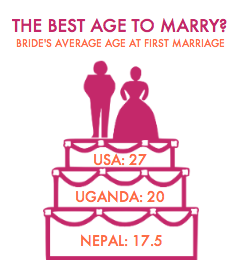
June 13, 2013 | Education, Politics and Leadership
Himalayan Heroines
Two Georgetown grads are helping Nepali girls and women find their power.
In Nepal, being born female means you already have one strike against you. Sixty percent of women there are illiterate and one third of all girls ages 15 to 19 are married. And even though in 2006 the country enacted quotas requiring that women hold 33 percent of government leadership spots, they tend to be in the lowest-status jobs. In fact, Nepal’s director of the Ministry of Women, Children, and Social Welfare is a man.
While there are plenty of hard-to-change reasons for women’s invisibility in public life—including a longstanding culture of patriarchy and a history of being ruled as a monarchy that ended only in 2008—there is one hurdle that’s eminently fixable: The fact that Nepal has no leadership programs expressly for and by young women.
Or rather, had no such programs. Thanks to two Georgetown University grads, Nepal has Women LEAD, which since 2011 has trained more than 400 high school girls to take leadership roles in their communities.
Women LEAD was born in a dorm room at Georgetown, the brainchild of Claire Charamnac, a native of Venezuela who grew up in Singapore, and Claire Naylor, an American whose family moved to Nepal after her third birthday. Living in a rural village, Naylor saw first-hand that "child marriage, illiteracy, and feminized poverty seemed to be the norm." She knew, however, that these women could accomplish great things if they were given a good education and leadership opportunities. "I didn't really want to transform Nepal's unjust structures and institutions," she has said. "I wanted Nepalese women and girls to do that themselves—from the inside out, from the grassroots level all the way up to high level policy" positions.
Women LEAD co-founders, Claire Naylor (left) and Claire Charamnac (right).
Based in the capital city of Kathmandu, Women LEAD offers leadership and skills training, mentoring, and a peer-support network. "The main message we hope to impart is 'your ideas, voices, opinions matter and are valid, you should use them,'" Charamnac says. "We take you seriously and you can make a difference where you are. Being an adolescent girl doesn’t mean you’re not able to participate in major discussions shaping your country."
A young woman named Rajina is a typical success story. Naturally quiet and shy, Rajina grew in confidence during her Women LEAD training. Working with the nonprofit, she mobilized youth around elections and organized voter registration. The Indian government gave her a full scholarship to study bio-tech at Bishop Cotton Women’s University, where she was later selected as a Google Ambassador. She hopes to do a joint MBA and Masters in Bio-tech at John Hopkins in the future.
Other LEAD alumni are gaining admission to top engineering and medical schools, writing op-eds to newspapers on the lowly status of women, advocating for their rights, and meeting with international representatives like former US Ambassador for Global Women’s Issues, Melanne Verveer.
Now Women LEAD is getting ready to lead itself to the next level by building the Chautara Resource Center. "Chautara" is the Nepali word for a meeting place for informal or village-council gatherings, says Charamnac. The Center will be "a meeting place for the young feminist and social entrepreneurship community in Kathmandu, where we'll run, workshops, book clubs, documentary screenings, and other awesome events for hundreds of young women leaders every year."
To learn more about Women LEAD, click here.